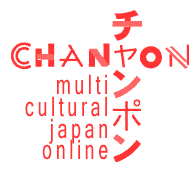2003年05月13日 火曜日
Bilingual After School Program
by Mizuko Ito
Education, Expats in Japan
Introducing a new bilingual after school program, Global Kids Academy (GKA). Located in Azabu, in the heart of Tokyo, GKA will start the summer program in June.
この夏より東京都麻布に新しいバイリンガルなアフタースクールプログラム、グローバルキッズアカデミーが始まります。
Global Kids Academy is a dual language after school program for children, offering a unique space for children from various ages and schools (both international and Japanese schools) to relax, study, play and learn. For further information, please check out the website.
グローバルキッズアカデミー(GKA)は日本の学校へ通うお子さんとインターナショナルスクールへ通うお子さんがそれぞれ日本語や英語を楽しく学び、文化交流できるプログラムです。
サマープログラムが6月9日よりスタートします。
詳しくはホームページをご覧ください。
Posted by Mizuko Ito at 2003年05月13日 22:54

Comments
GKA looks like a very neat idea; do other similar programs/ventures exist? I noticed their site has a strong emphasis on language acquisition and learning, but will there be any focus on helping kids deal with international/dual identity? I know I could have used some. Planned discussions about culture and tolerance? How will the trend towards Japanese adopting foreign words be handled, esp. with recent "gairaigo" issues? Just wondering...
Yes, culture, tolerance and identity issues are very important at GKA. Ultimately, we want kids to value their own culture(s), learn about and respect other cultures, and feel secure about their identities while they function as global citizens. What does this mean, practically? The cultural activities will be integrated with language programs. For example, for "Bilingual Projects - Adventures in Tokyo", one week we may go to nearby Zenpukuji to hear about its history... it was the site of the first U.S. consulate and Townsend Harris spent considerable time there in the 1800's. Another week, the kids might go down to Azabu Juban and interview the shopkeepers of some of the 300-yr old stores.
Regarding tolerance, one thing I've observed is that even at international schools, children have a tendency to "hang out with their own". At GKA, the whole point is interaction... we believe that kids will learn from each other through friendship with kids of different cultural backgrounds. In many cases, kids will be teaching each other... it could be a Japanese child teaching origami to an Australian child in Japanese or it could be an American child showing a Japanese kid how to research and write a story about the American Revolution using Hyperstudio. In the fall, the plan is to launch a full range of after-school activities as well as guest speakers, panel discussions, etc. We'll invite the bilingual/bicultural senpais to speak to the kids and families about identity and other issues kids may encounter in the future. (Please stop by if you are in Japan.)Regarding "gairaigo", I'm not sure if this has become an issue for children..... can you enlighten me?
Mika, very interesting. I'm actually living in Tokyo right now, so I'd be happy to stop by; in fact, you may have heard of my mother, who used to teach at ASIJ (if ロメイン先生 doesn't ring a bell, then I guess not). I find issues on Japanese/American identity, especially the development of such in kids, rather interesting since I'm somewhat still going through it myself.
As for 外来語, perhaps it's not so much an issue for children, but I have noticed how many Japanese are going out of their way to use Americanized words in their dialog, which I find rather sad. There are often perfectly fine Japanese words, but people still prefer the foreign one.
Matt, I will let you know if we hold a meet-a-senpai event at GKA. I can't seem to get through your spam filter, though...
An ability to draw outlandish words into its word-hoard is more a token of a tongue's strength than of weakness. The Japanese are using English now as their forebears used Classical Chinese in the past, and as English used, and still sometimes uses, French, Latin, Greek and other tongues. An old wisecrack states: "I speak twenty languages, all of them in English."
Many English-speaking folk use words drawn from outlandish tongues where English-born words might be enough: "sign" instead of "token", "people" instead of "folk", "vocabulary" instead of "word-hoard", "language" instead of "tongue", "ancestors" instead of "forebears", "foreign" instead of "outlandish". The English language doesn't seem threatened in any way by this tendency. It is, however, considered an advanced stylistic technique to be able to draw at need on both the native and borrowed vocabulary. I expect the Japanese will develop their language in the same way, encouraging writers to make use of all available resources.